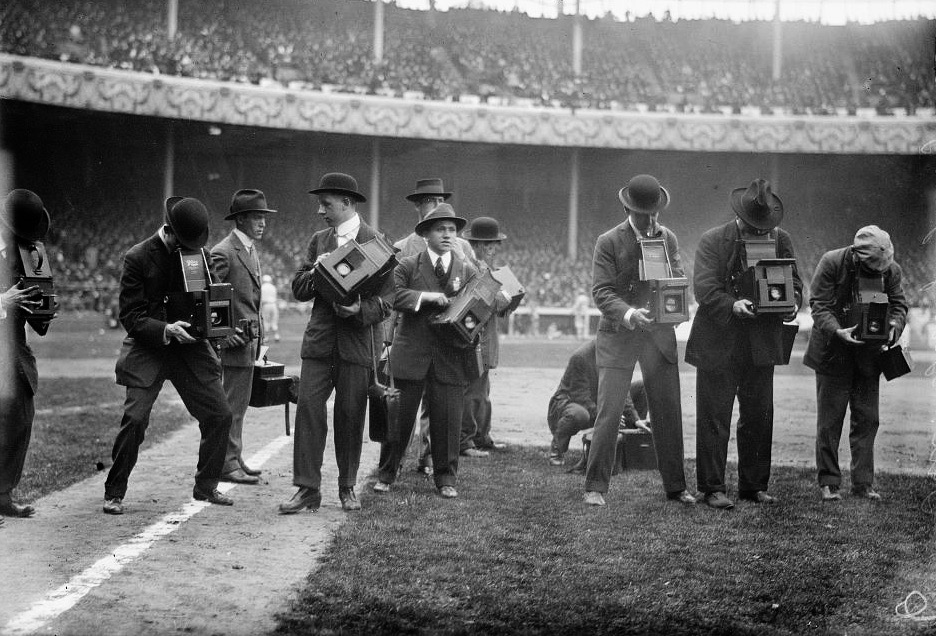On February 3, 1942, in his review of the film for the New York Times, Bosley Crowther wrote:
Kings Row, as it turgidly unfolds on the screen, is one of the bulkiest blunders to come out of Hollywood in some time. One could accept its morbid and spiritually depressing tale if it were told with coherence and unity and some better-than-average imagery. But it isn’t.
If remembered at all, Kings Row is probably best recalled for lending future president Ronald Reagan the most famous line of his acting career; and later, the title of his 1965 autobiography. After waking from an operation, Reagan’s character Drake is horrified to discover that both his legs were amputated. He cries out for his wife Randy, portrayed by Ann Sheridan, demanding, “Randy, where’s the rest of me?” It’s a scene that Crowther seemed to reference when he finished off his criticism of the film with this:
[Kings Row] just shows a lot of people feeling bad.
But how did it register with an audience? Well, I found an eyewitness account that not only comments on the film, but also relays details of the Astor Theater, once on Broadway and West 45th Street, where the drama first screened. You can find it halfway through James Baldwin’s 1968 novel Tell Me How Long the Train’s Been Gone. Curiously, the description dates from either November or December 1942, suggesting that Kings Row enjoyed a decent run at the Astor in spite of Crowther’s appraisal.
Leo Proudhammer, Baldwin’s young protagonist, and Caleb, his older brother, are looking to see a movie. They take the bus from Harlem and get off at 8th Avenue and 50th Street. There’s nothing nearby, so they head east. At Broadway, they walk south and wander “through the holiday crowds.” None of the marquees are inspiring. When they reach 42nd Street, they turn around and go back up Broadway. Suddenly, they stop at 45th. Baldwin explains:
Because Caleb liked Ann Sheridan, we ended up in Kings Row. I didn’t like Ann Sheridan. I thought she looked like a dumpling, and I didn’t like Robert Cummings, who looked liked two or there, and I couldn’t stand Ronald Reagan, who looked like a pitchfork and had teeth like a ferret; but I did like Charles Coburn and Claude Rains and Judith Anderson, and I especially liked Betty Field because she had a niggerish mouth, a mouth like mine. So, Caleb paid for the tickets, and we went on in.
Into the Astor:
We entered, first, into a kind of cathedral — an impression of tapestries, of banging gold, a vaulted height, a slinging, descending, mightily carpeted floor, great doors before us, Roman couches on either side, on one of which sat a lone young woman, wearing a green cloth hat and holding a thin umbrella, and smoking a cigarette. A bored male attendant, two bored usherettes, who looked sharply at Caleb and me.
Caleb leaves Leo to go to the bathroom.
I waited. I looked at the photographs of the movie stars on the walls. They were white and cheerful and dramatic…and very nearly reconciled me to Ronald Regan’s teeth.
When Caleb returns, they move from “the cathedral and enter the cave.”
Dark, dark indeed, sloping, hushed. We were in the balcony…the middle of the balcony, at an angle as steeply tilted as that of a bucking horse or a dying boat….
But at least Caleb could smoke there. After a newsreel showing Roosevelt, Churchill, and Stalin wrapped, Kings Row began. Baldwin admits, though,
My memory of this movie is hopelessly distorted by the fact that it cracked Caleb up completely. I very much doubt that a major masterpiece by Charlie Chaplin or W.C. Fields could have caused him to laugh harder. When we finally picked up the story line — so to speak; it was by no means an easy matter — Caleb whispered, “Shit, they acting just like niggers. Only, they ain’t got as much sense about it as we got.”
But Leo tried to pay attention:
I rather liked Cassandra, who was played by Betty Field, but Caleb thought that she was living freak, and wondered why no one had ever told her to tie up her hair.
A plot twist delivered more hilarity:
[As] we watched Robert Cummings’ plum-pudding reactions, Caleb hid his face in his hands, which was thoughtful of him, for we would have otherwise been thrown out of the theater.
Thankfully, Caleb calmed down because
He adored Ann Sheridan, winsome Irish colleen, and I found her somewhat more probable than I had ever found her to be before; but…
But!
When Ronald Reagan lost his legs — “both of them!” — Caleb cracked up again, and tears were streaming down his face by the time Robert Cummings delivered [the poem] Invictus [to Reagan in his bed during the film’s penultimate scene].
So, perhaps Kings Rows wasn’t as “heavy” and “rambling” as Crowther claimed!
Ad taken from the New York Times. Tuesday, February 3, 1942. Page 23, upper right hand corner. The day “Kings Row” opened.
Screenshot by Rick Stachura.
The Astor closed on May 30, 1972. Despite efforts to have it landmarked, the theater was demolished along with its four neighboring playhouses — the Victoria, Helen Hayes, Bijou, and Morosco Theaters — in 1982. A large hotel — The New York Marriot Marquis — replaced them.

